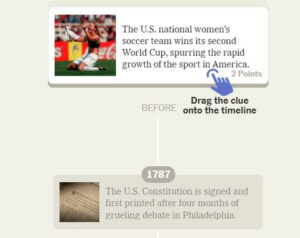Scores of trust leaders have been told they face having “coasting” schools rebrokered despite improving their Ofsted grades – with many others issued warnings despite just having one inspection.
Calls are growing for the Department for Education to ditch its “coasting” intervention powers. Introduced in September 2022, the powers mean schools with two or more consecutive Ofsted ratings below ‘good’ can be academised or rebrokered.
A Schools Week investigation has found 469 coasting letters – warning schools they face intervention – have been issued so far.
There were 22 instances where a trust was given a warning letter despite improving the school’s Ofsted grade in either its first or second inspection. Two were even sent termination warning notices.
A report by the EDSK think tank school-boards-and-a-new-regulator-says-think-tank/” target=”_blank” rel=”noopener” title=””>this week reported “numerous objections” to the policy from trust leaders.
The report’s co-author, Tom Richmond, a former Department for Education adviser, said the policy “disincentivises” trusts from taking on challenging schools.
It also “incentivises ‘quick fixes’” over “giving a school some time… to set it on a course to sustainable improvement”.
Schools denied ‘fresh starts’ with MATs
Meanwhile, our figures reveal that 77 trusts were sent letters for academies with only the one inspection since joining. This is because the Ofsted grades of schools prior to them joining the trust are also counted in the coasting policy.
Confederation of school Trusts deputy chief executive Steve Rollett branded it “unreasonable to hold a trust to account for an inspection that happened before a school joined”.
The Valley Leadership Academy, in Lancashire, also received a letter despite an improved Ofsted in its one inspection under the Star Academies Trust.
Twelve others were graded ‘good’ in inspections shortly after they were sent the letters. In all, nine of the 77 schools that improved their Ofsted grade were given termination warning notices.
Guidance states that regional directors invite schools meeting the coasting definition to “make representations”, before any decision is made on intervention.
However, Rollett added: “Even where the regional director engages constructively with the trust, it can feel like a very high stakes conversation.”
Although Kathy Hardy, chief executive of The de Ferrers Trust, which runs the school, said it “didn’t seem quite fair”, it meant the regional director has “seen the significant progress that’s been made”.
The Granville Academy in Derbyshire was sent a letter after its first ‘requires improvement’ with the chain.
LA schools far more likely to face intervention
Seventy-one per cent (139) of the 197 local authority-maintained schools that received coasting letters were issued with academy orders. Meanwhile, just under a quarter of academies (66) were given termination warning notices.
Geoff Barton, the general secretary of the Association of school and College Leaders, said this “casts the policy into further disrepute as it creates the perception that it is a lever to achieve the government’s objective of more academisation”.
However, DfE guidance states “there will be a presumption in favour of issuing the maintained school with an academy order so that it may join a strong multi-academy trust unless exceptional circumstances apply”.
The median size of a trust to receive a coasting letter stood at 12 schools. Trusts have, on average, 4.5 academies.
Hugh Greenway, the CEO of the Elliot Foundation, which has had two letters, suspects this “reflects the fact that the larger trusts have taken on more schools with larger challenges than anyone else”.
The MAT with the most coasting letters was Academies Enterprise Trust (six), Active Learning Trust (four) and the Shaw Education Trust (four).
An AET spokesperson said two were now rated ‘good’ – one of which got that rating for the first time in its history.
The others are all rated ‘good’ for leadership and management, which were “demonstrating [our] ability to turn these schools around”, or awaiting a full inspection.
Active Learning Trust CEO Lynsey Holzer said “receiving a coasting letter can be unsettling for the school community, as well as the trust”.
‘Master–servant relationship’
Meanwhile, interventions are also focused on schools in the 55 Education investment areas (EIAs) – “the weakest [places in the country] based on sustained low performance” between 2017 and 2019.

But Steve Chalke, the leader of the Oasis Charitable Trust, said this has contributed to “a growing number of schools in the most challenging areas that no trusts are willing to take on”.
“More and more feel they’re not in a partnership [with the government] but in a master–servant relationship.”
London – which does not have any EIAs – attracted just eight (3.9 per cent) termination warning notices and academy orders.
The most was the West Midlands (17.1 per cent), northwest (16.6 per cent) and east Midlands (14.1) per cent. The regions have nearly half of EIAs.
In a paper published last week, CST stated the “problematic” coasting definition… should be redesigned or abandoned”.
Barton called for the policy to be “jettisoned” as it “stigmatises schools and makes it harder to secure improvement”.
A DfE spokesperson stressed “decisions about whether to intervene in schools are taken on a case-by-case basis, taking account of all the relevant circumstances”.
#Schools #coasting #warnings #raising #grades




More Stories
Six in Ten Black Single Mothers Will Vote For Candidates Who Support School Choice – NJ Education Report
Abraham Lincoln: Fun Facts, Biography, and More
FAFSA delays are leaving students in limbo. California campuses don’t expect help